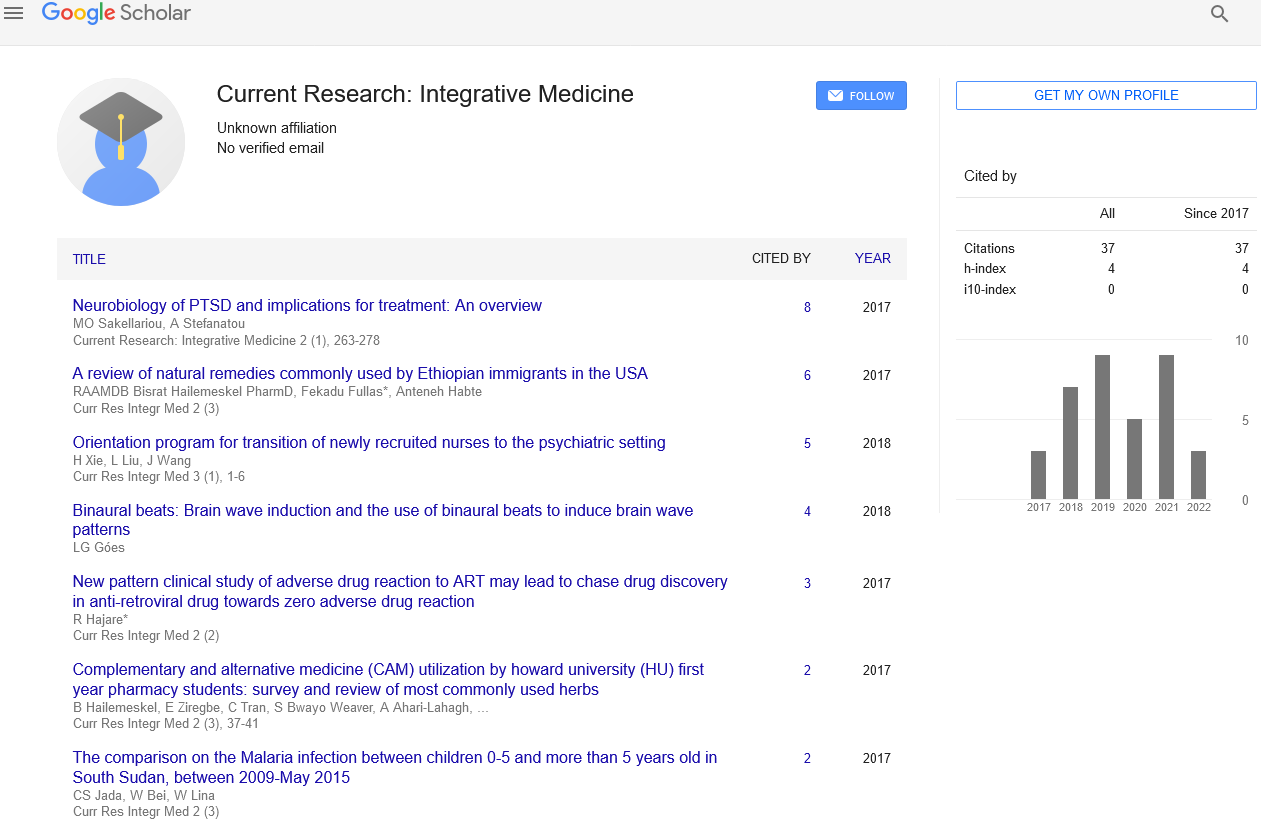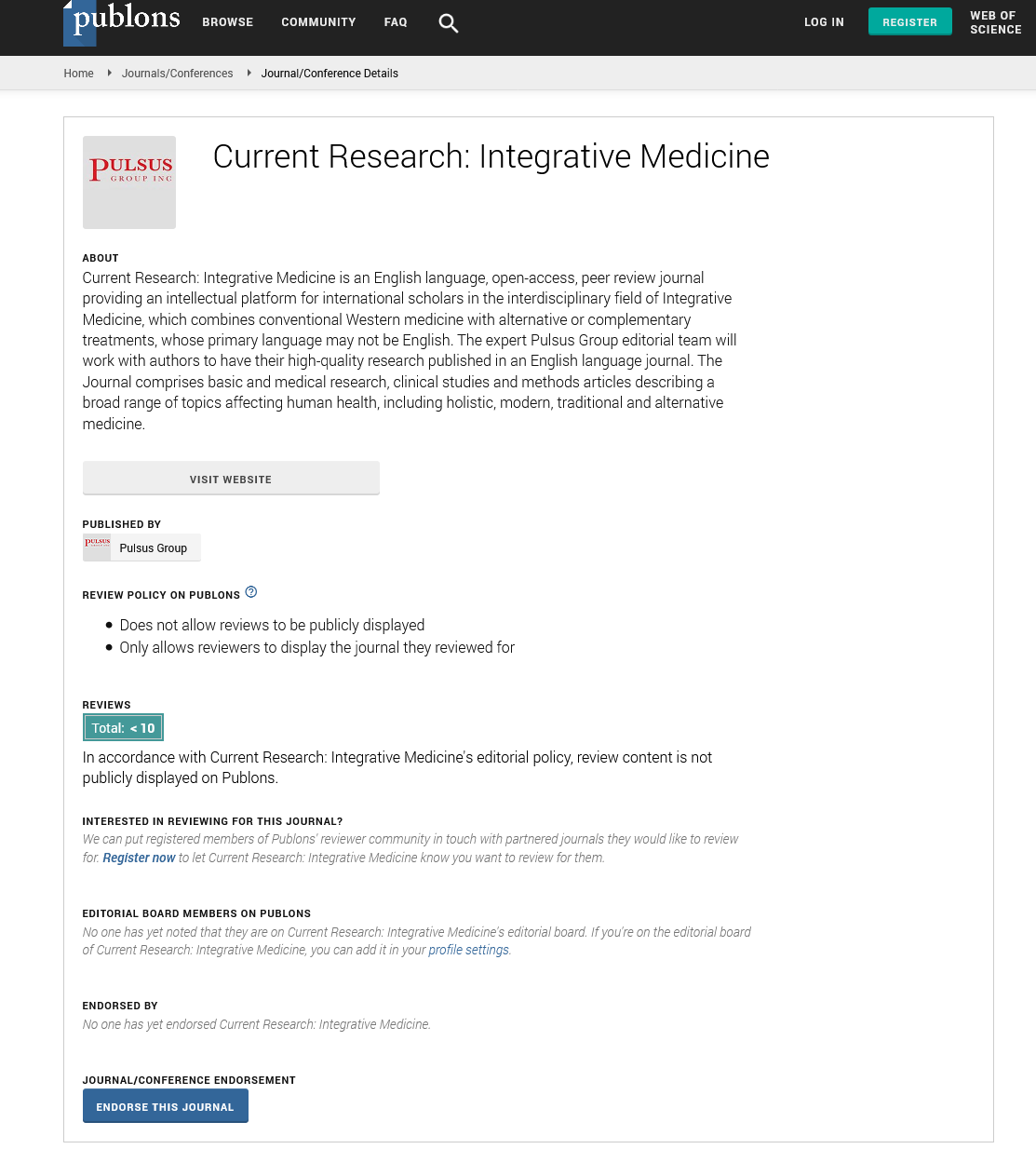The transformative power of biotechnology: Shaping the future
Received: 23-Jul-2024, Manuscript No. pulcrim-24-7122; Editor assigned: 25-Jul-2024, Pre QC No. pulcrim-24-7122(PQ); Reviewed: 31-Jul-2024 QC No. pulcrim-24-7122(Q); Revised: 03-Aug-2024, Manuscript No. pulcrim-24-7122(R); Published: 10-Aug-2024
This open-access article is distributed under the terms of the Creative Commons Attribution Non-Commercial License (CC BY-NC) (http://creativecommons.org/licenses/by-nc/4.0/), which permits reuse, distribution and reproduction of the article, provided that the original work is properly cited and the reuse is restricted to noncommercial purposes. For commercial reuse, contact reprints@pulsus.com
Abstract
Biotechnology, the application of biological systems and organisms to develop or create products, has emerged as a transformative force across multiple sectors. This article delves into the multifaceted impact of biotechnology, exploring its historical evolution, key technological advancements, and its role in addressing contemporary challenges in medicine, agriculture, and environmental sustainability. The discussion highlights both the immense potential and the ethical considerations that accompany biotechnological innovations, ultimately emphasizing the need for balanced and responsible development.
Key Words
Biotechnology; Genetic engineering; Biopharmaceuticals; CRISPR; Sustainable agriculture
Introduction
Biotechnology, at its core, is the application of scientific and engineering principles to the processing of materials by biological agents to provide goods and services. This field has revolutionized numerous industries, from healthcare to agriculture, and continues to push the boundaries of what is possible in science and technology. The advancements in biotechnology have been propelled by the convergence of molecular biology, genetics, and biochemistry, leading to groundbreaking innovations that promise to address some of the most pressing challenges of our time, such as disease eradication, food security, and environmental sustainability.
Historical context
The roots of biotechnology can be traced back to ancient times when humans first started to harness the biological processes of microorganisms for brewing, bread-making, and cheese production. However, modern biotechnology began to take shape in the mid-20th century with the discovery of the structure of DNA by Watson and Crick. This breakthrough laid the foundation for genetic engineering, a pivotal aspect of biotechnology that involves the direct manipulation of an organism's genome using biotechnology.
Key technological advancements
One of the most significant advancements in biotechnology is genetic engineering, particularly the development of CRISPR-Cas9 technology. CRISPR (Clustered Regularly Interspaced Short Palindromic Repeats) has revolutionized genetic editing by allowing scientists to make precise, targeted changes to the DNA of living organisms. This technology has vast applications, including gene therapy for inherited diseases, the development of genetically modified crops with improved traits, and the creation of organisms capable of producing biofuels.
Biopharmaceuticals
The field of biopharmaceuticals, which involves using biotechnology to produce drugs and therapies, has seen remarkable growth. Monoclonal antibodies, recombinant proteins, and vaccines are just a few examples of biopharmaceuticals that have transformed medical treatments. For instance, the rapid development of mRNA vaccines for COVID-19 by companies like Pfizer-BioNTech and Moderna showcases the potential of biotechnology to respond swiftly to emerging health crises.
Synthetic biology
Synthetic biology is an interdisciplinary branch of biotechnology that aims to redesign organisms for useful purposes by engineering them to have new abilities. It combines elements of biology, engineering, and computer science to construct new biological parts, devices, and systems. Synthetic biology has applications in various fields, including the production of biofuels, biodegradable materials, and novel pharmaceuticals.
Biotechnology in agriculture
Biotechnology has played a crucial role in advancing agricultural practices. Genetically Modified Organisms (GMOs) have been developed to enhance crop yield, improve nutritional content, and provide resistance to pests and diseases. For example, Bt cotton and Bt corn have been genetically engineered to express a toxin derived from the bacterium Bacillus thuringiensis, which is effective against specific insect pests, reducing the need for chemical pesticides.
In addition to GMOs, biotechnology is also employed in developing crops that can withstand harsh environmental conditions, such as drought and salinity. These innovations are particularly important in the face of climate change, as they contribute to food security and sustainable agricultural practices.
Environmental biotechnology
Environmental biotechnology focuses on using microorganisms and plants to remediate contaminated environments, produce renewable energy, and develop sustainable waste management practices. Bioremediation, for example, involves using microorganisms to degrade pollutants in soil and water, offering a natural and costeffective solution to environmental contamination.
Biotechnology is also pivotal in the production of biofuels, which are renewable energy sources derived from biological materials. Algae, for instance, can be engineered to produce biofuels that serve as alternatives to fossil fuels, thus reducing greenhouse gas emissions and dependence on non-renewable energy sources.
Ethical considerations and challenges
While biotechnology holds immense promise, it also raises ethical and societal concerns that must be carefully considered. Issues such as genetic privacy, the potential for unintended consequences of genetic modifications, and the equitable distribution of biotechnological benefits are critical topics of debate. The regulation of biotechnology, therefore, needs to strike a balance between promoting innovation and ensuring safety and ethical integrity.
Public perception and acceptance of biotechnological advancements also play a significant role in their implementation. Transparent communication and public engagement are essential to build trust and address concerns about the impact of biotechnology on health, the environment, and society.
Future prospects
The future of biotechnology is incredibly promising, with ongoing research and development poised to unlock new possibilities. Personalized medicine, which tailors treatments to an individual's genetic profile, is expected to become more prevalent, leading to more effective and targeted therapies. Advances in regenerative medicine, including stem cell therapy and tissue engineering, hold the potential to repair or replace damaged tissues and organs, revolutionizing healthcare.
In agriculture, the development of crops with enhanced nutritional content, such as Golden Rice, which is fortified with vitamin A, can help address malnutrition in developing countries. Additionally, the continued improvement of biotechnological tools and techniques will enable more efficient and sustainable agricultural practices, contributing to global food security.
Environmental biotechnology will continue to play a vital role in addressing environmental challenges. The development of new bioremediation techniques, coupled with advances in synthetic biology, will enhance our ability to mitigate pollution and develop sustainable solutions for waste management and energy production.
Conclusion
Biotechnology stands at the forefront of scientific innovation, offering solutions to some of the most pressing challenges facing humanity. From revolutionizing medical treatments and agricultural practices to addressing environmental sustainability, biotechnology has the potential to profoundly impact our lives and the world around us. However, with great power comes great responsibility. It is imperative to navigate the ethical and societal implications of biotechnological advancements carefully, ensuring that the benefits are maximized while minimizing potential risks.
As we look to the future, continued investment in research and development, coupled with transparent communication and ethical considerations, will be key to harnessing the full potential of biotechnology. By embracing the transformative power of biotechnology, we can pave the way for a healthier, more sustainable, and prosperous future for all.






